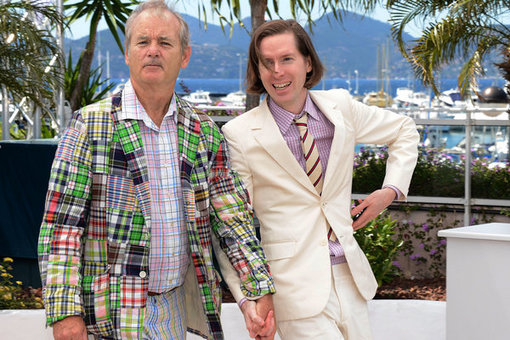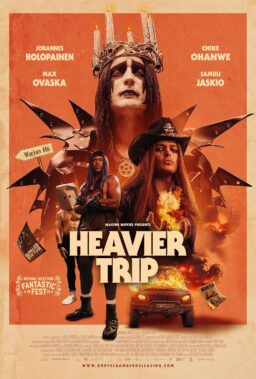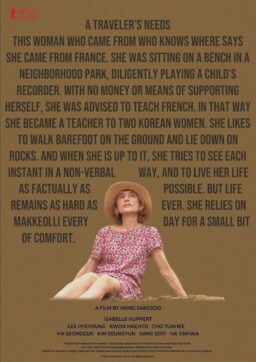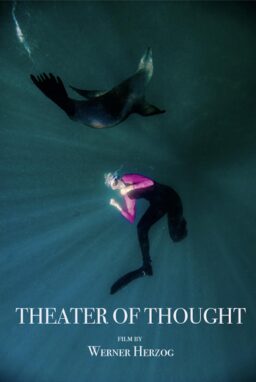We all live in our own little subcultures. In mine — loosely categorized as international film-festival cinephiliacs — big-name contemporary filmmakers such as Apichatpong Weerasethakul, Abbas Kiarostami, Michael Haneke and the Dardennes brothers (yes, they’ve all won the Palme d’Or at Cannes) are huge, huge stars. In fact, some of us, whether we like them or not, feel they are overexposed, on the verge of becoming more than famous: ubiquitous. Like Kardashians or something. (I’ll be honest: I don’t know what a Kardashian is, but I keep hearing the term.) I mean, good god, the Dardennes have been all in your face throughout the 21st century, making movie after movie and picking up awards everywhere you look. And don’t even get me started on Kiarostami. That guy became the international flavor-of-the-film-fest-circuit in the 1980s, achieved his biggest commercial success in 2010, and has a new film in competition at Cannes right now.
I suppose it’s true that, to most people outside our own little coterie, the Cannes Film Festival means just about nothing. Its impact on the American box office is negligible (although Kiarostami’s Palme-winner “Taste of Cherry” grossed a pretty impressive $312 thousand in the US in 1998. That’s about what “Marvel’s The Avengers” took in while you were reading the last sentence). I guess fame — or importance — depends on your perspective.
A few things got me to thinking about this. One was Manohla Dargis’s NY Times dispatch from Cannes. I love her observations:
If Mr. Kiarostami, one of the most revered directors working today, does win this year, he will join a long list of Palme luminaries whose importance to, and impact on, cinema has little to do with the box office. The festival’s prejudice toward — or, more generously, its loyalty to — favorite auteurs has been routinely held against its programmers, as if filmmakers and their works should only be McMeasured by the millions and billions served. “Uncle Boonmee Who Can Recall His Past Lives,” from the Thai director Apichatpong Weerasethakul, for example, which was the surprise winner of the 2010 Palme, probably isn’t a title familiar to many moviegoers, especially Americans. The movie grossed just a squeak over $180,000 when it was released in the United States in 2011.
To which a movie lover can only say, too bad and so what? The influence of filmmakers like Mr. Weerasethakul, whose short documentary “Mekong Hotel” is playing out of competition here, can be manifested in outright imitation, in certain kinds of shots or camera moves. More often, though, it’s a question of how the movie organizes time and space and wreaks havoc with, or conforms to, narrative norms. Mr. Haneke has spawned, and not always with happy results, an assortment of cinematic manqués whose work is characterized by chilly intellectualism and heavy moral themes, with little of his art. The Belgian filmmaker Jean-Pierre Dardenne, who is presiding over two juries at this year’s festival, has, with his brother, Luc Dardenne, become one of the most influential filmmakers in the past decade.
This brings me back to the discussion I provoked last week about the use of the word “prominent” to characterize a group of “American” filmmakers that included Michael Bay, Eli Roth, Stephen Daldry, Jon Favreau, Bryan Singer and Duncan Jones. It’s not that I’m unaware of the dictionary definition(s); I wanted to see how different people interpreted it in this particular context. I mean, there’s prominent and there’s prominent, there’s influential and there’s influential, there’s successful and there’s successful, there’s famous and there’s famous….
In the 1990s, when I was editor of Cinemania at Microsoft, the still-inchoate MSN decided to place all its bets on something called Sidewalk, a network of online city guides designed to reap the harvest of local classified advertising. (Don’t worry if you don’t remember; it was almost as successful as Microsoft Bob, much more expensive, and was a “Did we dream that?” memory within about a year. The company brought in, of all people, some New York magazine publishing people (who were accustomed to three-month deadlines, not three-hour ones) an I used to joke that they thought Tina Brown was the most famous person in the world. I meant it as a joke, and an insult, but I also knew it was fundamentally true.
When people are really into their area of geekdom, they can sometimes forget that their knowledge and passion is not universally shared. Hard as it is to believe, there are people alive today who have never seen a Lubitsch movie. I know! Bizarre! And so, if I find myself in a position to write about a Bruno Dumont movie, I will have to first confess (sheepishly) that I’ve never seen one before. I don’t know why.
But international art movies are my thing, and always have been. I love ’em. It should be considerably less surprising to learn that I’m unfamiliar with a large number of comic book movies — but when I write about one (even Christopher Nolan’s auterist Batman pictures), I feel I owe it to the reader to explain my background, and where my interests lie. I feel the way Roger Ebert did in 2004 when he wrote of his op-ed pieces: “Opinions are my stock in trade, and is it not more honest to declare my politics than to conceal them?”
Another peccadillo of mine is that I don’t like to know about movies that are way out on the horizon. I might pick up something here or there (I know, for example, that Harvey Weinstein served up clips from Quentin Tarantino’s “Django Unchained” and Paul Thomas Anderson’s “The Master” in Cannes this week, but I sure as heck am not going to watch the stuff they put online). So, I was charmed by this exchange between Vulture’s Kyle Buchanan and Wes Anderson, one of the most famous people in the world, at Cannes (Anderson’s first time there):
KB: Do your friends ever send you any of these Wes Anderson viral videos that go around? Recently, there was a supercut of every shot you’ve filmed from above …
WA: Oh, I did see that one, yeah.
KB: … and another video that imagines “Battleship” as if you had directed it.
WA: “Battleship”? What’s “Battleship”?
KB: Wes, you need to brush up on your competition if you’re going to be a summer movie auteur! “Battleship” is this $200 million action movie that’s about to come out. And it’s based on the board game.
WA: It’s based on the board game?!
KB: It’s based on the board game.
WA: Wow. But yeah, the “shot from above” video, I watched that and all I could see was how many hours of setup time went into all of those shots. It was like a documentary of how much time I’ve spent on movie sets….
See, we all have our own frames of reference. Take a look at that Cannes photocall picture, above. Who did you recognize first?
Photo, accompanying NYT story quoted above, by Andrew H. Walker, Getty.
UPDATE (06/01/12): Vulture.com: “Is Michael Fassbender famous?











